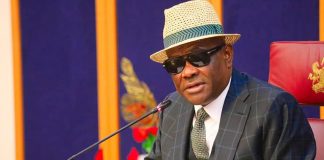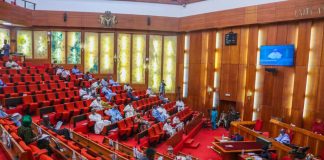🌿 Ruzu Non-Alcoholic Herbal Bitters
Ruzu Non-Alcoholic Herbal Bitters is a natural health supplement specially formulated to:
- ✅ Promote general wellness
- ✅ Detoxify the body
- ✅ Support the treatment of various ailments
Made from a powerful blend of 100% organic and medicinal herbs, Ruzu is completely alcohol-free, making it ideal for:
- 👪 All age groups
- 🌱 Health-conscious individuals
- 🌿 Anyone seeking non-alcoholic herbal remedies
Whether you're looking to boost your vitality, cleanse your system, or support healing the natural way, Ruzu Bitters offers a trusted herbal solution.
Promoting economic fairness, elevating the voices of cocoa farmers, and fostering sustainable technologies that enhance the standard of living for African cocoa producers and their communities are all priorities that the Cocoa Farmers Alliance Association of Africa (COFAAA) has underlined.
Comrade Adeola Adegoke, the association’s president and worldwide coordinator, emphasized during the COFAAA webinar that although though Africa supplies more than 70% of the world’s cocoa, systematic injustices and unfair international trade practices keep the continent’s farmers impoverished.
“African cocoa ecosystem is the foundation of the global chocolate industry, which is valued at over $120 billion annually,” he said.
African cocoa producers are exposed to poverty, price volatility, and unjust market circumstances since the economic gains are still unfairly distributed, according to Adegoke.
In order to help smallholder farmers, COFAAA wants to buck this trend by working more closely with governments of African cocoa-producing nations, development partners, and international cocoa organizations.
Adegoke stated, “Our goal is to raise local processing and African cocoa production to approximately four million metric tonnes, which accounts for 90% of the world’s cocoa production.”
“This must be achieved through increased productivity per hectare (800 kg to 1000 kg), sustainable practices like intensifying cocoa agroforestry, ecosystem management, traceability, premium flavor processing methods, and soil-friendly and climate-smart farming practices—all while guaranteeing youth inclusivity.”
By bringing together the voices of smallholder cocoa farmers, increasing productivity through sustainable methods, and encouraging greater collaboration among stakeholders, he added, the webinar was organized to support and maintain African leadership in the global cocoa economy.
“COFAAA is a pan-African membership-based organization dedicated to addressing the most critical issues facing cocoa farmers,” Adegoke said.
Read Also: Hauwa Indimi Reflects: Spiritual Distance from God in My 20s Was a Regret
Ensuring the long-term sustainability of the global cocoa ecosystem, empowering farmers, and promoting sustainable agricultural methods are our goals. The cocoa sector in Africa is a symbol of our agricultural heritage as well as a major economic engine, he said.
The International Cocoa Organization (ICCO), World Cocoa Foundation (WCF), Cote d’Ivoire-Ghana Cocoa Initiative (CIGHCI), Ghana Cocoa Board, Cameroon’s National Cocoa and Coffee Board, Nigeria’s National Cocoa Management Committee, and other international cocoa organizations and stakeholders were commended by him for their efforts in maintaining African cocoa production in spite of the growing threats posed by climate change.
“Since we now account for 70% of global cocoa production, many African governments and institutions have already put in place sound policy frameworks and strategic partnerships to sustain our leadership in this area,” he said.
Speaking through his deputy and technical manager, Tawiah Agyarko-Kwarteng, Executive Secretary of the Cote d’Ivoire-Ghana Cocoa Initiative (CIGHCI), Alex Assanvo, gave the webinar’s keynote message. He praised COFAAA for providing a forum to elevate the views of African cocoa producers.
The partnership, according to Agyarko-Kwarteng, is appropriate and consistent with CIGHCI’s objective to enhance farmers’ well-being by utilizing the economic, social, and environmental pillars of sustainability.
She emphasized that the presidents of Cote d’Ivoire and Ghana founded the CIGHCI to address severe issues facing the cocoa industry, specifically those related to prices and earnings for farmers in both nations, which together produce the majority of Africa’s cocoa.
















